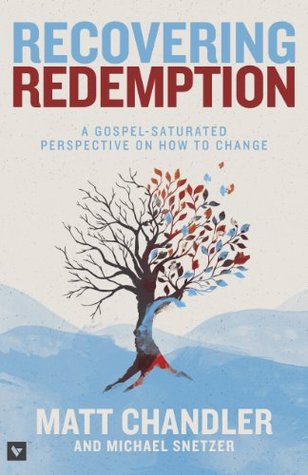More on this book
Community
Kindle Notes & Highlights
Read between
April 14 - April 17, 2017
the downdraft from the previous chapter you just read is that while the good news of the gospel may not appeal to everyone, the bad news of the gospel still applies to everyone.
The gospel, remember, means “good news.” And for news to be good, as we said earlier, it must invade dark spaces, such as the dark, crooked paths we’ve already talked about: a futile trust in ourselves, a needy codependence on the approval of others, a tawdry love affair with the world, a pretend game of righteousness based on the rigid, arbitrary rules of religion.
Anybody (obviously) can call themselves a Christian. They can want to be good, can wish they were different, can make any number of outside-in adjustments, trying to better themselves. But only a Christian has been given what he or she needs to truly hate their sin from the ground floor up, to desire true righteousness from the inside out, and to challenge what’s truly wrong with themselves from a point of diagnostic clarity. To truly change.
Horizontal grief is much less concerned about being broken, and much more upset about being busted.
Whenever the main driver of recovery is emotional zeal alone, the fuel will always burn up once the passion has played out. The difference between changing our ways and being stuck in the same old stuff is often the same difference between wanting to be whole and just wanting to feel better again.
We’re sad at how it’s hurt us, or how it’s caused us to hurt someone we care about. But, come on now, it’s not nearly as ferocious as everybody says. If we just watch it more carefully, we can keep it under control. No problem. Won’t happen again. If we just manage it a little better, we’ll be fine. No need to overreact. But sin can’t be trained; sin must be killed. It won’t ever just wet on the paper; it’ll always end up trashing the whole house. The only way to change it is to get rid of it, not go around cleaning up after it or trying to teach it how to mind you. Sorrow comes from treating
...more
You have no shot at experiencing real change in life if you’re habitually protecting your image, hyping your spiritual brand, and putting out the vibe that you’re a lot more unfazed by temptation than the reality you know and live would suggest.
Our senses are never more awakened to our need for His love than when our need is most exposed.
This is why the Word of God is so essential in the daily, ongoing life of a believer. Because from the minute you close your Bible in the morning, you’re entering a world that’s fighting every truth and teaching it represents. At every turn. And if God’s message is not deep inside you, where you can meditate on it, return to it, and frequently call it back to mind, you won’t be able to discern what’s really true from what may be really intriguing, really alluring, really convincing, but really false. And really defeating.
The conflict you’re having is not primarily about them; God is working in this conflict to reveal something about you.
What you’re feeling, even as a Christian, when you cross the lines and boundaries that your good and loving God has put into place for your protection, is true guilt. It’s really there. But by the undying nature of His covenant love, He continues to patiently work with us through our weakness and fallenness, urging godly repentance from our hearts, and thereby short-circuiting the other sinful spinoffs that can piggyback onto the guilt of our repeated failures.
One of the marks of Christian maturity is a willingness to absorb and forgive any ugliness or injustice that’s tossed in our direction, and to let our desire for retaliation or rebuttal fall peaceably to the ground.
We’re pleasure seekers. Like a cell phone constantly searching for signal strength, we’re always scanning for the things that’ll give us the best shot at being happy. And temptation, by its very nature, is an appeal to our joy impulse. Although the promises that sin makes are promises it can’t keep, they’re often the kind of sweet promises we still love to hear.
Our daily decisions not to participate in sin are only sacrifices if we’re convinced those old friends of ours are sitting there holding our last, best chances for joy. But once we realize they’ve got nothing on us and on the sheer contentment that flows from walking with Jesus—contentment that’s both full at the moment and yet constantly drawing us in for more—those soda cans of lame promises start tasting increasingly flat.


